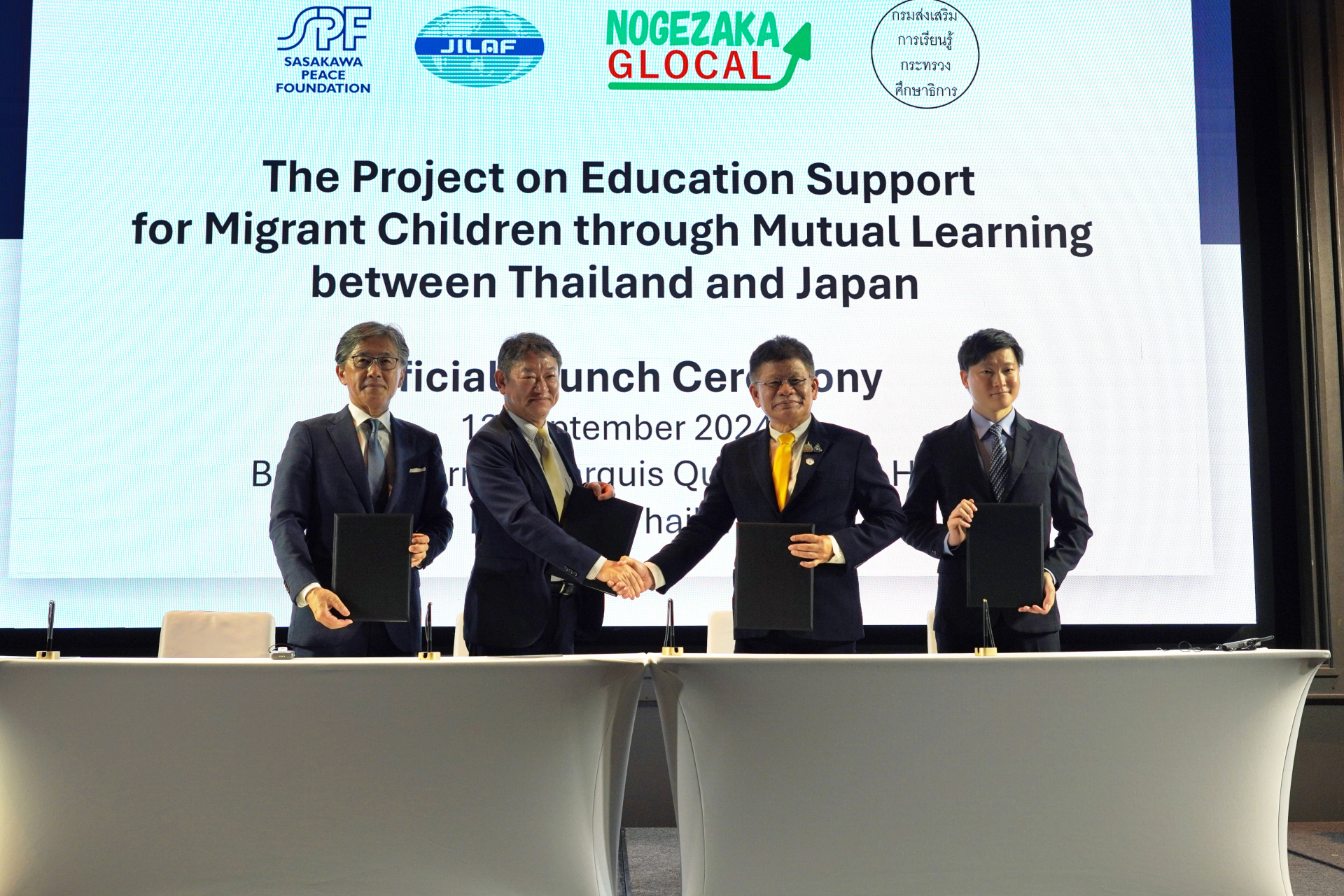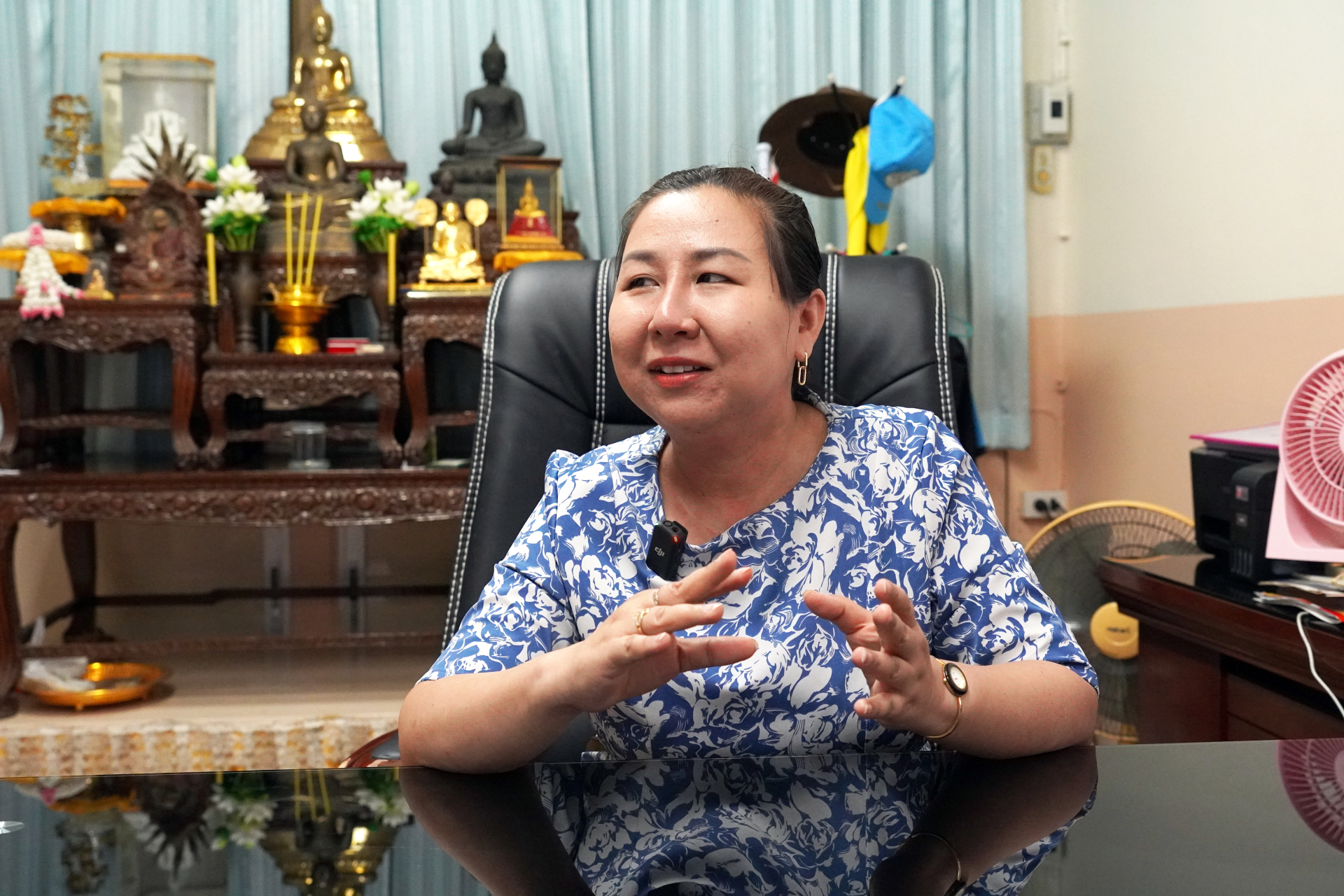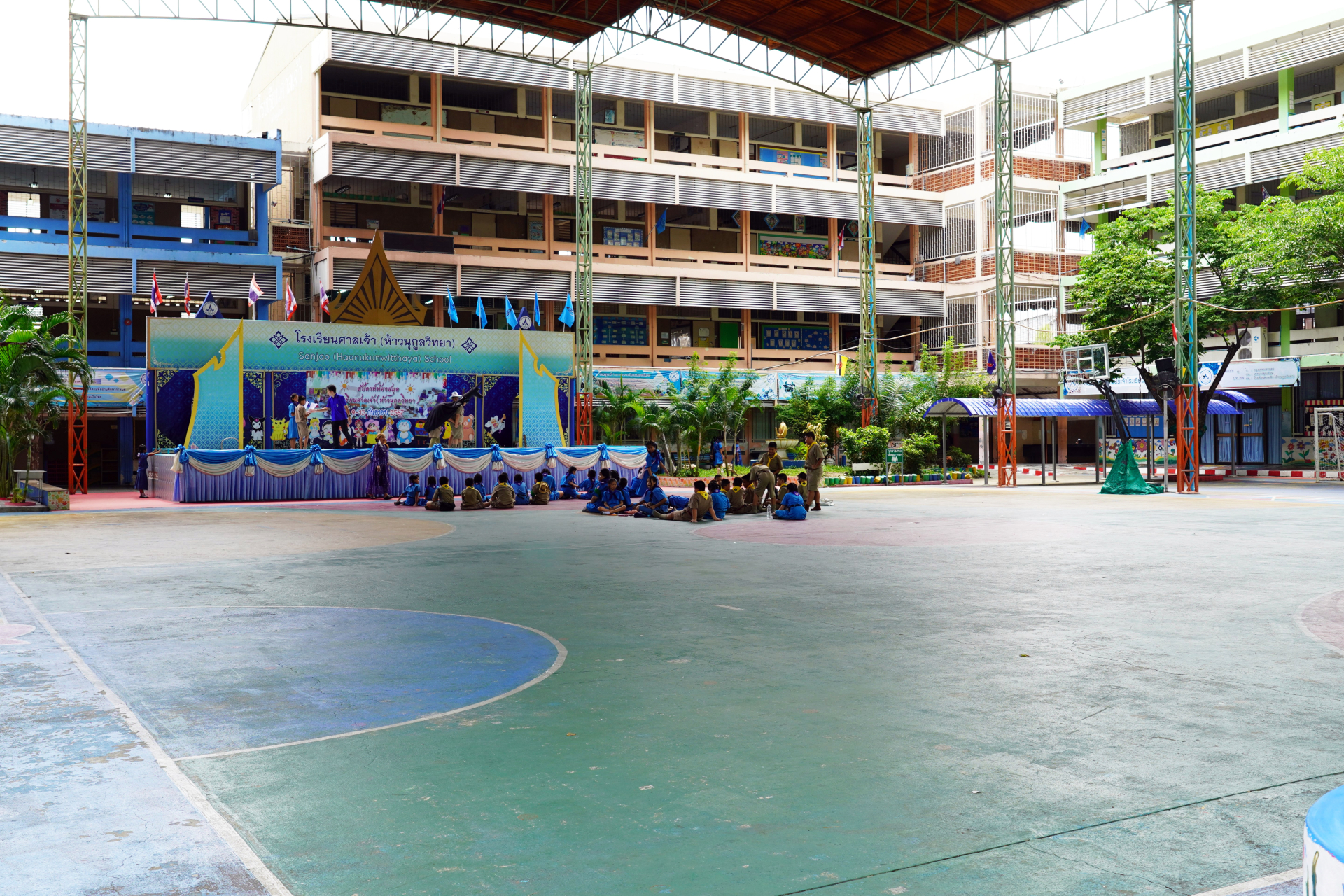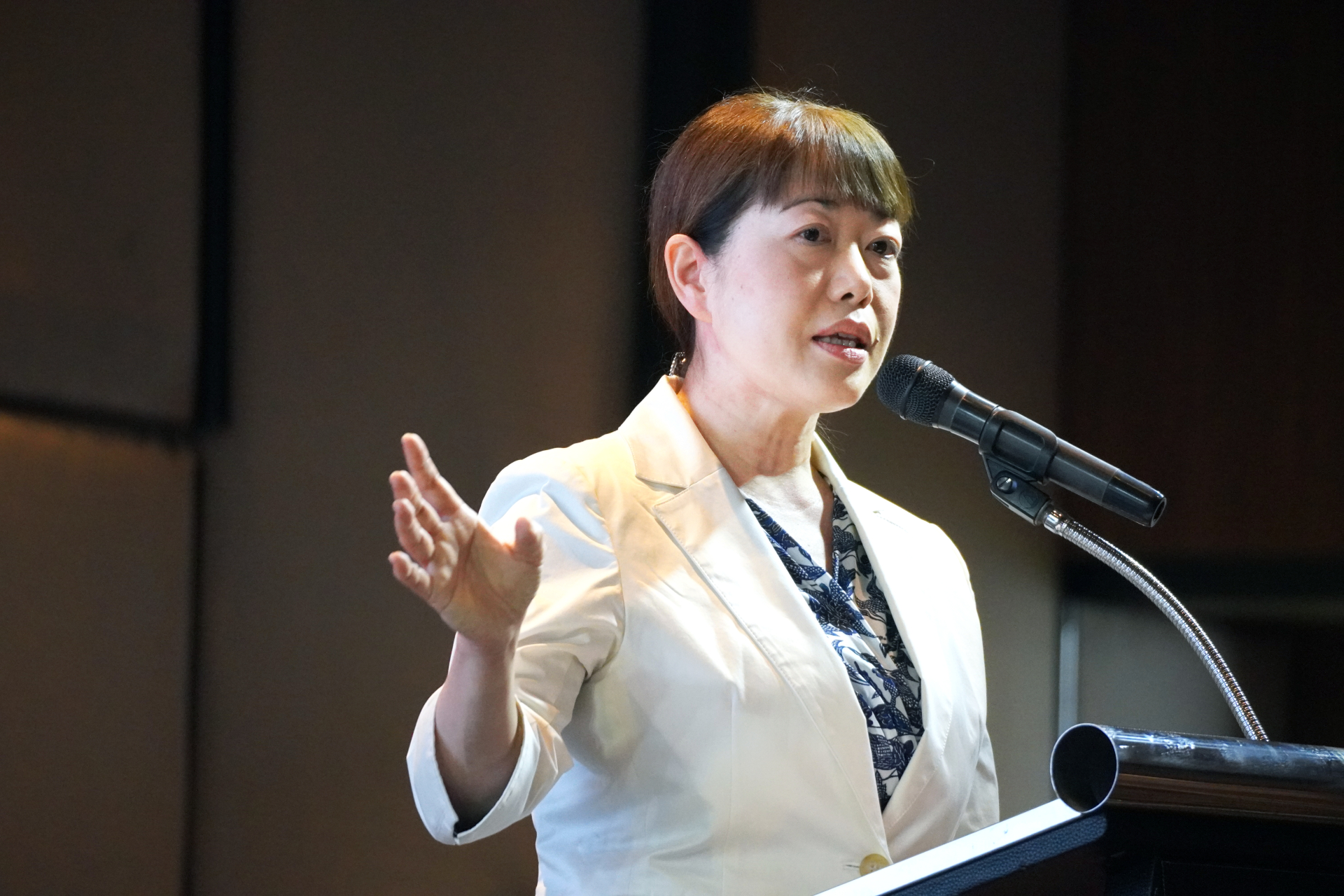As Thailand has undergone rapid economic development in recent decades, migrant workers and their families from neighboring countries have increasingly moved to the country, including an estimated 390,000 children. While all children in Thailand, regardless of nationality or legal status, are guaranteed access to public schools thanks to a Cabinet resolution enacted in 2005, many children of migrant workers continue to fall behind in their education. Difficulties with the Thai language, unfamiliarity with the educational system, and lack of financial resources are some of the common causes for why these children may be unable to attend school.
To support greater access to education for these children, the Sasakawa Peace Foundation (SPF), Thai Ministry of Education, Japan International Labour Foundation (JILAF), and Nogezaka Glocal launched the “Education Support for Migrant Children Through Mutual Learning Between Thailand and Japan” project with the signing of a Memorandum of Understanding on September 13, 2024, in Bangkok, Thailand.
This four-year collaborative initiative aims to establish a volunteer system to promote school attendance, develop Thai language programs, increase teacher training, raise awareness, and conduct other outreach activities in the pilot areas of Prawet District, Bang Khun Thian District and Bangborn District, Bangkok Metropolitan and Tapma Municipality, Rayong Province.

From left: JILAF President Yasunobu Aihara, SPF Executive Director Itsu Adachi, Acting Captain Visarn Punyachun, and Nogezaka Global Advisor Yusuke Miyoshi
“I firmly believe that education is the key to creating a better future, and every child should have equal educational opportunities, regardless of their family background,” said Acting Captain Visarn Punyachun, Deputy Director General of the Department of Learning Encouragement, Ministry of Education of Thailand, during his remarks at the MOU signing ceremony. “With support from all sectors, this project will not only help build the potential of migrant children, but also promote Thai society to progress in the right direction.”
On behalf of the Japanese government, Tatushi Nishioka, Deputy Chief of Mission for the Embassy of Japan in Thailand, touched on the regional implications, calling the launch this project an opportunity for both Japan and Thailand to learn from each other’s experiences, particularly regarding social issues, and deepen international ties and cooperation.
SPF Executive Director Itsu Adachi, who signed the MOU on behalf of the foundation, agreed that the experience in both countries can be shared to create more inclusive societies throughout the region. “In Japan, as in Thailand, many migrant workers are active in various aspects of society, including economic development and cultural diversity,” he said. “By allowing the children of migrant workers to receive public education in Thailand, they can learn not only Thai language and other subjects, but also Thai culture. After graduating from a Thai public school, these children will become good citizens and be able to contribute more effectively to the development of Thai society.”
Meeting the needs of children in schools
Many schools across the country are already welcoming the children of migrant workers into their student population. However, this has brought about challenges with ensuring the school provides a learning environment the meets the needs of all students.
According to Natita Palakawong, principal of Sanjao (Haonukunwitthaya) School, a K-6 elementary school in Bangkok where nearly 40% of the students are children of migrant workers, one of the most pressing challenges day-to-day is the language barrier.
“If the children cannot communicate, they will not be able to communicate with the teachers or with each other, and they will not be able to keep up with the lessons. Even if we try to communicate with the guardians about this, the guardians are also unable to respond,” she explained through an interpreter. “In cases like that, it's difficult to provide good education for the child, and that's one of the things that the teachers and the school are having trouble with.”

Natita Palakawong, principal of Sanjao (Haonukunwitthaya) School

Nearly 40% of the students at this K-6 elementary school in Bangkok are children of migrant workers.
The experience at Sanjao (Haonukunwitthaya) School mirrors the results of a survey of migrant worker families conducted by SPF, the Thai government, and partner organizations, which found that the language barrier was the biggest challenge, followed by a lack of awareness that children without Thai nationality are entitled to receive public education.
“In the course of our research into migrant workers and their children, we found that there were a significant number of parents who wanted to continue living in Thailand, who wanted to work in Thailand, and who wanted to give their children a good education in Thailand, particularly in the greater Bangkok area and near the Cambodian border,” explained Masako Iwashina, program officer for SPF’s Social Innovation Program and lead for this project. “We noticed that there were not enough organizations working to meet these needs, so we thought that there was a need to do something here.”

Masako Iwashina, program officer of SPF's Social Innovation Program
Creating a model for Thailand and the region
Beyond filling gaps in support on the ground, this program also seeks to create a framework that can create a positive impact on the country and broader region.
Thailand, which is now one of the fastest aging countries in the world, continues to welcome migrant workers, which in turn helps to support the country’s economic development while counteracting the aging population trends. Given this reality, sustainable integration of the estimated 3.9 million migrant workers, including access to education for their children, is critical, and has implications for the wider region, which may face similar demographic challenges moving forward.
Looking to the future, Ms. Iwashina noted the importance of building a sustainable system that can be used not only in Thailand, but across the region, saying that “the situation of these migrants is not unique to Thailand, but also occurs in other ASEAN countries, such as Malaysia. I'd like to send out the message that this model of education can also be applied to these countries.”



